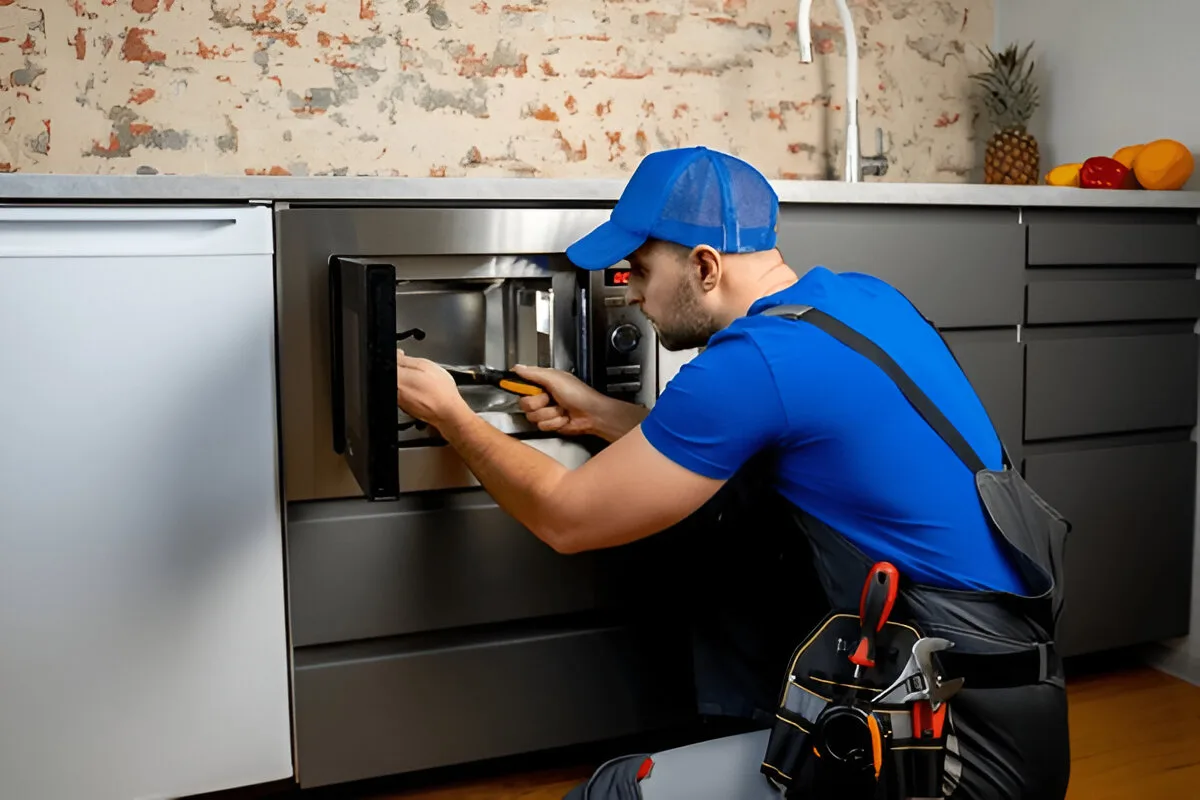Ovens are a staple of every kitchen, but as with any home appliance, there is always a chance that it can fail. Either it has a heating issue, a faulty thermostat, or the door is broken, most individuals consider trying DIY repair to avoid extra money and time. However, oven repair involves electrical and gas components, so safety has to be the major priority. Before you go for your toolbox, you need to know what you should and shouldn’t do when you attempt to make a DIY oven repair.
Why Safety is Important in DIY Oven Repair?
Ovens operate at high temperatures, electricity, and even gas, which are all dangerous if not handled properly. One small mistake can lead to extreme burns, gas leaks, electric shock, or even house fires. That is why safety measures must be known before attempting any repair.
What You Should Do for Safe DIY Oven Repair?
For safe DIY oven repair, take safety first by cutting power, reading manuals, and knowing your limits to avoid electrical shock or further damage.
1. Unplug the oven or turn off the electricity.
Before repairing, always turn off the oven from the power source. Remove the electric oven from the wall outlet if it is electric. If it is hardwired, turn off the circuit breaker that powers the oven. This will avoid electric shocks during appliance repair.
2. Shut Off the Gas Supply (For Gas Ovens)
For gas stoves, safety first. Locate the gas valve behind the stove and turn it off before even attempting to repair. If you think there’s a gas leak, don’t try the repair—call a professional immediately.
3. Protective Gear
When handling an oven, wear protective gloves to prevent burns and cuts. Safety glasses will also prevent your eyes from getting hurt by any debris or sparks when working with electrical parts.
4. Use the Owner’s Manual
Your oven manual has crucial details about troubleshooting and repair procedures. Always consult the manual before you take apart any part of the oven to receive advice from the manufacturer.
5. Identify the Problem Before Disassembling
Instead of taking apart the entire oven first, determine the problem. Check for apparent signs like frayed wires, malfunctioning heating elements, or error codes on the control panel.
6. Use the Right Tools
Having the right tools can make the repair process easier and safer. Screwdrivers, wrenches, an electric tester, and a flashlight are required for most oven repairs. Avoid using tools not designed for appliance repair since they may cause more harm than good.
7. Work in a Well-Ventilated Area
If your oven has gas pipes, be well ventilated during work. Having a gas leak in a contained space is very dangerous, so open doors and windows to get fresh air.
8. Check the Oven Once Repaired
Once you have completed the repair of the oven, test it before you use it again. Plug it in, turn on the power, or restart the gas supply, and test whether the issue has been fixed. If it persists, it would be advisable for a professional to call you.
What You Shouldn’t Do When Repairing an Oven
When fixing an oven, do not take steps that may jeopardize your safety or make the appliance worse.
1. Do Not Work with a Hot Oven
Never take a hot oven apart before proceeding with any form of repair. It raises your chances of receiving burns and making accidental injuries.
2. Don’t Try Advance Repairs Unless Experienced
Though lesser issues like a change of a heating element or door seal are performed with normal knowledge, complex ones involving wiring, control board, or gas elements of the oven are preferably undertaken by professionals. Messing up with such elements without suitable experience may create even bigger problems.
3. Never Ignore a Gas Leak
If you smell gas odor while repairing a gas oven, stop work and exit the building. Do not attempt to repair the leak yourself. Have a professional service person or your gas company repair the leak.
4. Don’t Use Incompatible or Defective Parts
Only use manufacturer-approved replacement parts when repairing an oven. Incompatible or defective parts can cause further damage or even pose safety hazards.
5. Don’t Hurry the Repair Process
It is better to take your time to ensure that every step is followed correctly. Rushing the repair process may cause you to miss important details or make mistakes that will cause more damage or injury.
When to Call a Professional Rather Than DIY?
Although most minor oven repairs can be done at home, there are certain situations that call for professional attention. Call a technician if:
You’re facing a gas leak.
The wiring of the oven is damaged or requires replacement.
The control board is faulty.
There are electrical sparks when the oven is activated.
The problem continues after troubleshooting.
Conclusion
DIY oven repair is achievable for small faults, but safety should always be paramount. As long as you use the right precautions, the correct tools, and recognize when to call in the professionals, you should be able to diagnose and repair your oven without unnecessary risks. Whether it’s a dodgy heating element or an easy electrical fault, safety first should always be your priority.

